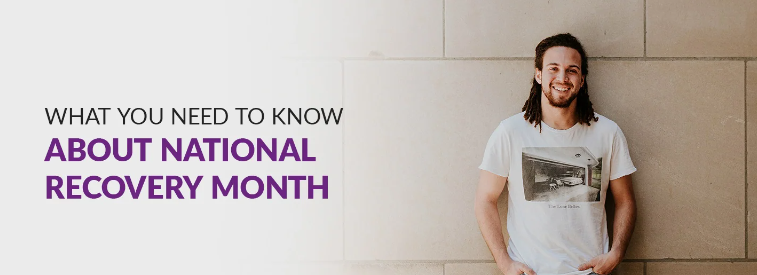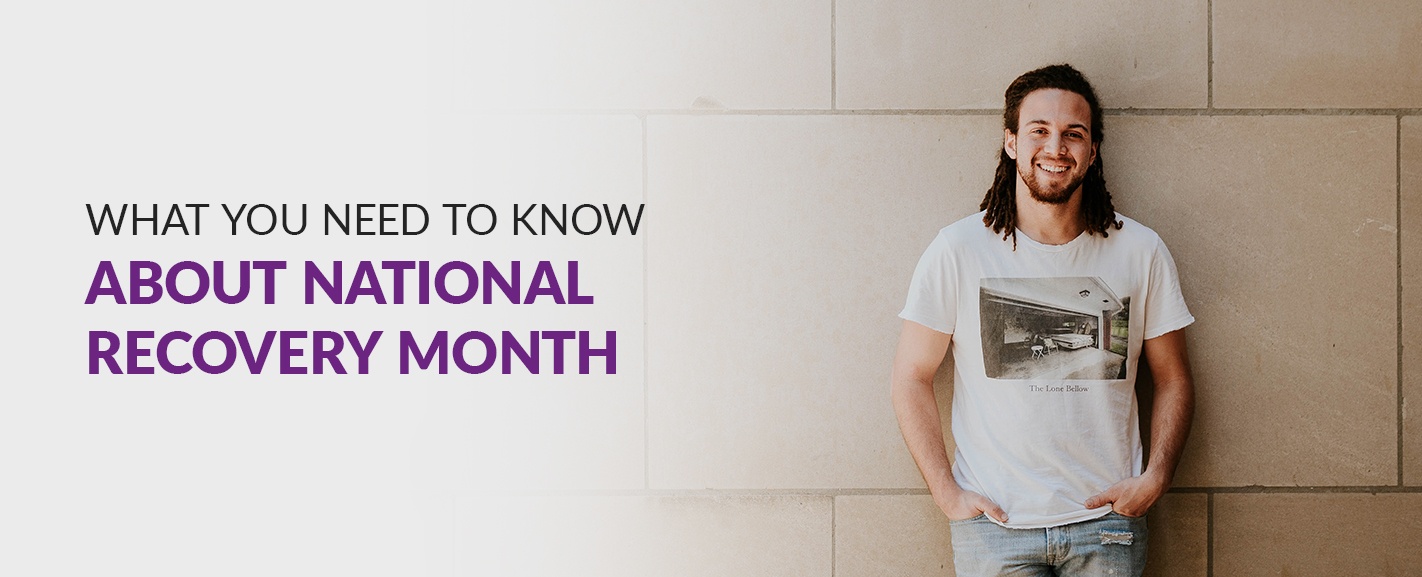

Updated July 18, 2023
National Recovery Month is a month-long event that publicizes the benefits of prevention, treatment and recovery for mental and substance use disorders. It is also a time to celebrate people in recovery, the contributions of treatment and service providers, and promote the message that all forms of drug and alcohol recovery are possible.
September is National Recovery Month. Tens of thousands of prevention, treatment and recovery programs across the country celebrate Recovery Month each year.
The Substance Abuse and Mental Health Services Administration (SAMHSA) announced its decision in June 2020 to stop sponsoring this event. Fortunately, Faces & Voices of Recovery is hosting all events and assets that make this possible on their newly developed Recovery Month website.
National Recovery Month launches meaningful activities to benefit those who are dealing with substance use disorders. This event is designed to facilitate access to care, fight the stigma that comes with substance use disorders and celebrate the accomplishments of those undergoing the journey to recovery.
Everyone has their own story, and most people in recovery realize that it is a difficult journey with high peaks and low valleys. The Centers for Disease Control (CDC) reports that excessive alcohol use in the United States leads to 140,000 deaths every year in the U.S., and there were 68,630 opioid overdose deaths in 2020 alone.
Advocating for recovery is one of the most important activities of National Recovery Month. Effective rehabilitation programs are crucial for those that struggle with substance use disorders.
Stigma prevents people with substance use disorders from seeking treatment. A National Institutes of Health study found stigma often carries a negative psychological impact. Feelings of hopelessness and worthlessness prevent people who feel stigmatized from seeking proper treatment. Often, they might have a fear of friends and family rejecting them, being let go from their jobs or being excluded from communities.
National Recovery Month fights stigma to educate people about substance use disorders and the importance of treatment and recovery.
National Recovery Month celebrates people who have started the recovery process by telling others that recovery is possible, and it works! This shows those who suffer from substance use that they have reasons for hope. People will hear encouraging examples and stories of those who deal with addiction and find workable solutions.
During National Recovery Month, people strive to share their success stories with their neighbors, friends and colleagues. This allows everyone to raise awareness and achieve a better understanding of mental health disorders.
Now in its 30th year, the theme of this year's event is "Join the Voices for Recovery: Together We Are Stronger." The theme helps to recognize everyone who helps in the recovery journey, including first responders, nurses, community leaders and recovery advocates.
If you're interested in addiction awareness, you're in addiction recovery, or you would like to promote messages from the event, you can get involved in many ways.
Interested in holding an event in your community? This can be a great way to rally everyone together to support recovery efforts.
Don't want to host an event? Check out your local community calendars to see if there are any events going on near you!
Sharing on social media is one of the easiest ways to support National Recovery Month. To spread the word, you can use Recovery Month materials on your blog, website or social profiles. You can share positive messages about prevention, treatment and recovery for your friends and audience to see. Share your recovery journey or links to others' recovery stories, alongside links to recovery resources. Or engage with National Recovery Month's Facebook, Instagram or Twitter.
You can encourage political figures to issue a proclamation in support of National Recovery Month. Asking your local leaders to issue a proclamation about National Recovery Month allows them to commit to improving access to treatment programs. It can also increase awareness of these issues in your community.
Share your recovery story with a friend or educate them on addiction. Education and awareness are powerful tools that can encourage people to share their own experience that relates to substance use disorders or mental health issues.
We can reduce the stigma by talking about drug education and sharing recovery stories. This encourages people to seek the treatment they need. Such conversations are an important step toward helping people understand addiction is a disease and that recovery is possible.
Recovery requires a complete lifestyle change and involves six steps to make a change. The first three steps include pre-contemplation, contemplation and preparation. Following these initial steps, the next changes to make include action, maintenance and termination. While some people accomplish these stages in order, some may take their own path to recovery and move back and forth between stages.
Are you ready to start your journey to recovery? Contact Diamond House Detox today to find out about same-day admittance for drug and alcohol detox in Northern California. We offer detox in a private setting, which provides clients with luxurious accommodations in a more intimate and private environment.
Content medically reviewed by Vicky Magobet, PMHNP-BC, on September 1, 2021.
Sources: